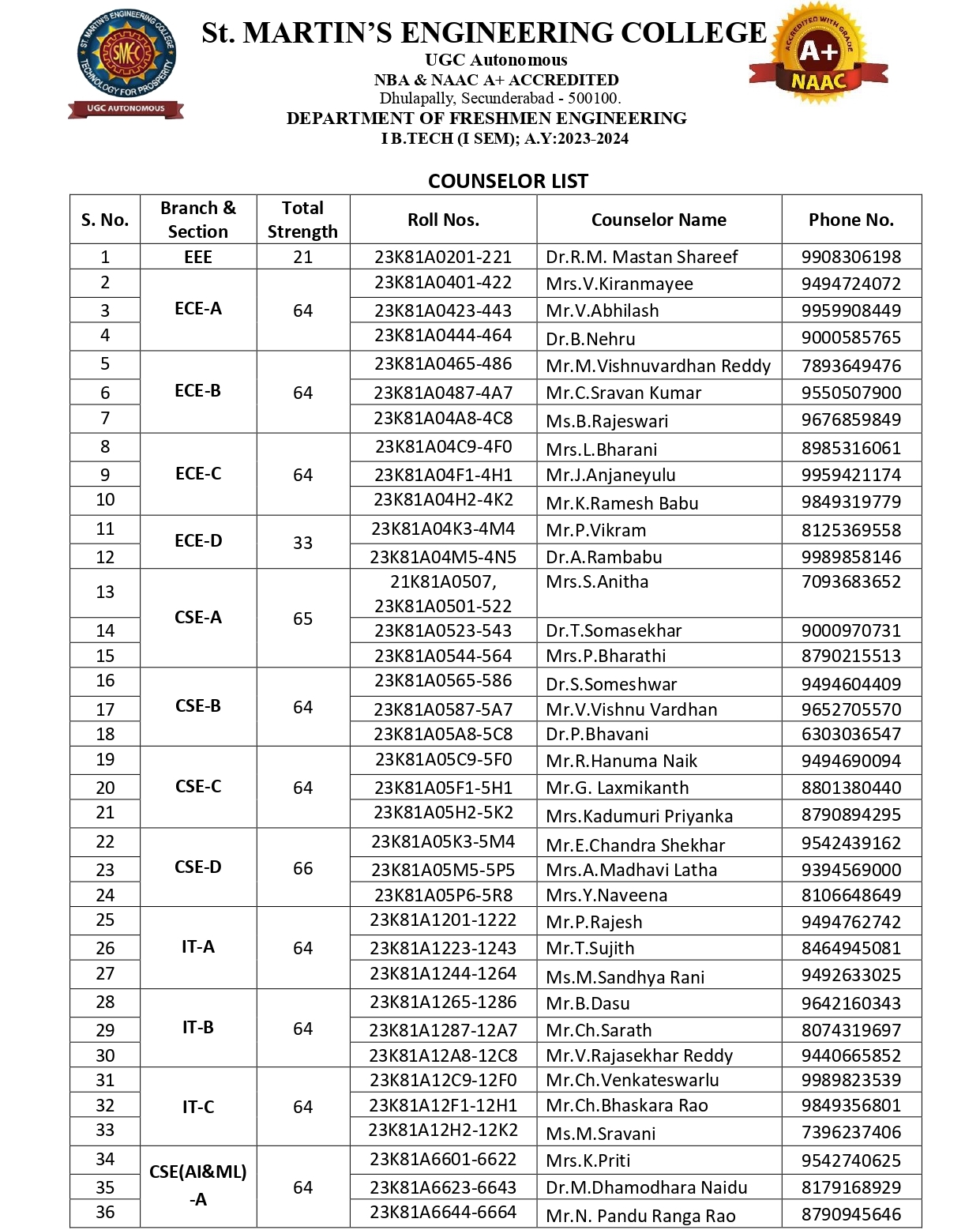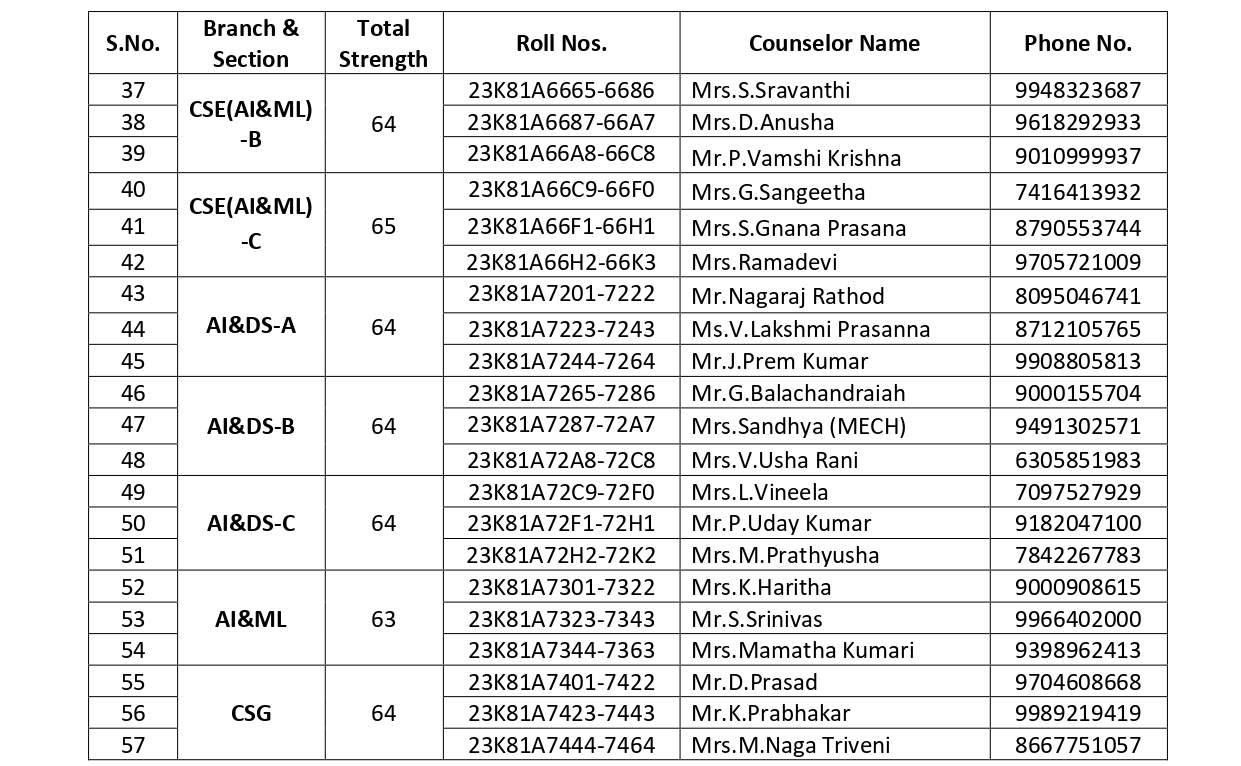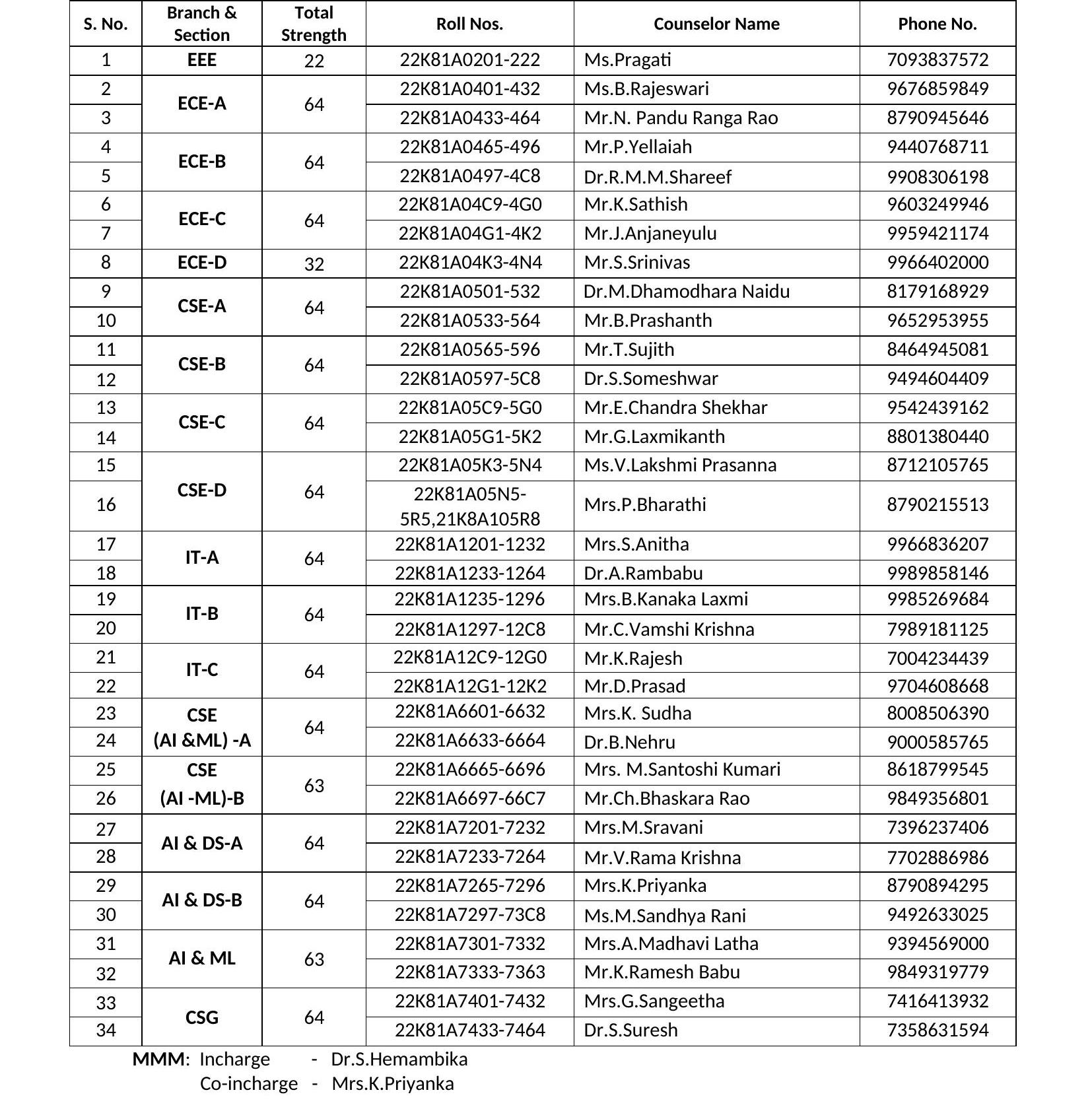MENTORING
The general perception that being a good Mentor requires a special skill is a misconception. Mentors are good teachers, who are also good role models.
Mentors role includes assessing, guiding and advising the students towards their professional and personal development. Teachers in turn are benefited by mentoring as it gives them a thorough understanding of the difficulties faced by the students apart from giving them a sense of satisfaction and achievement in their career.
Identifying students’ problems and finding solutions to solve them will be the core discussion in ‘most of the mentor meetings. Frequently mentors should meet students one to one whenever necessary. Mentoring should bring psychological change in the students by enhancing their capacity to learn and achieve goals. The students should feel that the mentors care for the general well being and this would lead to their better academic performance apart from instilling a greater sense of confidence to them.
Effective mentoring makes the student to realize:
The potential to learn.
Confidence and self- assurance.
Value education and learning process.
Teachers should have one-to-one trusting relationship that focuses on the needs of mentees. They should foster caring and supportive relationships. Some of the characteristics of a good mentor are:
Good Listener
Able to study and assess
Supports & Encourages
Educates & Guides
Problem solver
Provides insights & Inspires
Always accessible
MENTOR GUIDELINES
At the initial level, the discussion can take place more on personal well-being, strengths and weaknesses, values and interests etc; to ease the students and to make them feel that Mentor is approachable for having some personal and friendly discussions. A mentor may also help with exploring careers, setting goals, developing contacts, and identifying resources.
At the intermediate level, mentor should know the mentees learning style, attentiveness during lectures, preparedness for exams and time management etc. Whenever necessary, mentors may point out areas that need improvement.
Mentors should be aware of the career path of the students, its progression and provide guidance, motivation and support accordingly.
Mentors should analyze and advise mentees constructively on the following issues:
Optimize their learning experience by improving the reading, notes taking habits.
Look into areas of learning difficulties and suggest ways to overcome them.
Time Management.
Encourage them to attain their goals.
Work towards overcoming their shortcomings.
Locate resources for learning and encourage self learning.
Discuss with them frequently about their well being, learning difficulties, career progression and other interests etc so as to analyze and advise for their betterment.
Ideal Mentor
Mentor should be accessible on one to one basis.
Mentors maintain eye contact and give mentees their full attention.
They should keep the students focused on their goals without appearing to push them.
Mentors should be role models.
Mentors may use their personal experiences to help their students from benefiting from life experiences of others.
Mentors are available as a resource person encouraging students to learn and improve.
Mentors advice on the performance of the students should be specific, constructive and encouraging.
In this motivational task, the following faculty members are deputed as Mentors to conduct Mentor – Mentee Meeting (MMM) effectively.
MENTOR LIST (A.Y-2023-2024)


MENTOR LIST (A.Y-2022-2023)







